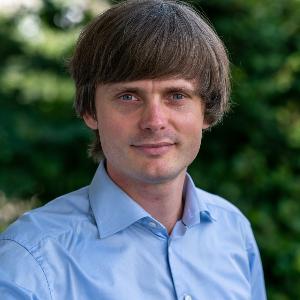Grant: Understanding skin formation
18 Mar 2022
LMU physicist Friedhelm Serwane together with two international collaborators has been awarded an HFSP grant of one million Euros.
18 Mar 2022
LMU physicist Friedhelm Serwane together with two international collaborators has been awarded an HFSP grant of one million Euros.

Friedhelm Serwane | © Chris Wrenger
Understanding the underlying physics of skin development is critical for preventing and curing numerous skin defects, painful blistering, and skin cancers. To be able to engineer life and study the process of skin formation outside the human body, all in a plastic dish, LMU physicist Friedhelm Serwane together with two international collaborators has been awarded an HSFP grant of one million Euros. The Human Frontier Science Program (HFSP) has been promoting international cooperation in the field of life sciences since 1989. Projects must include researchers from at least two countries.
The three research groups collaborate closely throughout all stages of the project. Tamal Das and his team at the Tata Institute in Hyderabad (India) will implement stem cell derived model systems for the skin, so called skin organoids. LMU researcher Friedhelm Serwane and his group will quantify the mechanics of skin organoids during their development. These measurements will then generate inputs for theoretical models, developed by theoretical physicist Max Bi and his team at Northeastern University in Boston. The team effort provides a radically different approach to understand how a single layer epithelium transforms into a multilayer tissue.
“This success was made possible by the excellent research environment at LMU”, says Friedhelm Serwane. “We are grateful for the strong support from the Faculty of Physics, the Soft matter group at LMU, the Center for NanoScience, and the Munich Cluster for Systems Neurology (SyNergy).
The International Human Frontier Science Program organization supports novel, innovative and interdisciplinary basic research focused on the complex mechanisms of living organisms. The program is supported by Germany, Japan, Australia, Canada, France, Italy, Korea, Great Britain, USA, New Zealand, India, Switzerland, and the European Union. The funding is highly competitive, and this year only four percent of the applicants turned out to be successful. In the newly funded project, researchers from LMU Munich, the Northeastern University (USA) and from the Tata Institute for Fundamental Research Hyderabad (India) will team up to develop a biophysical understanding of the formation of a multilayer tissue such as the skin.
More information: https://www.serwanelab.org/